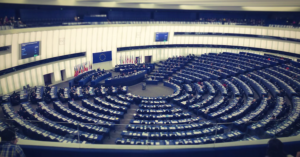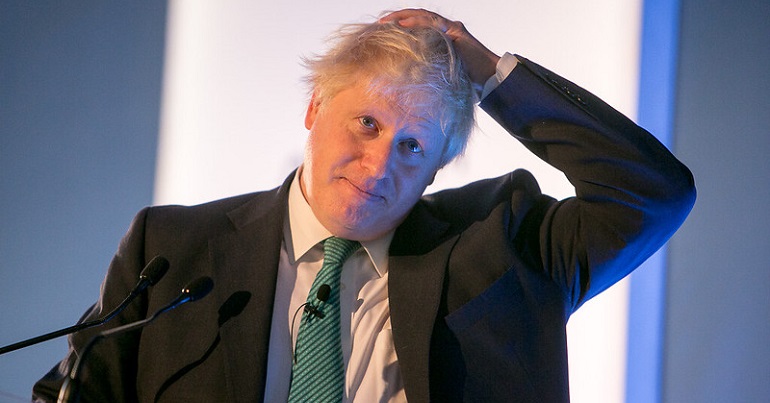31st European Green Party Council: Securing a Green Recovery from COVID-19
From June 10 to 13, the Council of the European Green Party (EGP) came together for its 31st meeting, which took place online for the first time. During three days of voting, panels and conferences, the EGP’s 39 member countries debated the resolutions that will determine the party’s position in a post-COVID-19 future.
On Friday, June 12, the Council hosted its “Restart Europe” panel, in which speakers from across the party’s network considered the broader implications of COVID-19 for the continent. As the discussion progressed, emphasis was given to issues of ‘conditionality’, and the relationship between the European Commission* and national European economies. Considerations were framed by a central question: How can European states recover from COVID-19 in a way that contributes to the creation of ecologically viable economies? Or, more specifically, how will the European Commission secure that the COVID-19 recovery plans of member states are also distinctly ‘green’ recovery plans? As one of the speakers, Virginijus Sinkevičius (EU Commissioner for the Environment, Oceans and Fisheries), emphasised, this synchronised approach is imperative to creating meaningful and long-lasting “resilience” in Europe. Without it, and if only immediate economic needs are fulfilled, a “sustainable recovery” from the pandemic is not possible.
Currently, the EU Commission’s recovery plan remains a proposal, and has yet to be extensively reviewed by the European Parliament. However, it is currently proposed that the recovery plans of each member state be adopted through ‘Implementing Acts’, as explained by Philippe Lamberts (Co-president of the Greens/European Free Alliance Group in the European Parliament), who spoke on the panel.
‘Implementing Acts’ describe a form of agreement between the Commission and a member state, in which uniform conditions of implementing the law are jointly determined. Significantly, under this provision, the Commission has to act in accordance with the views of the national experts with whom it deliberates.
Alternatively, recovery plans could be adopted through ‘Delegated Acts’ in which the Commission determines the final legislation in tandem with the European Parliament, and only an informal consultation is required with national experts.
These options present a challenging dynamic between the EU Commission, European Parliament and the member states themselves, that will likely prove difficult to balance. If pursuing an ‘Implementing Act’, how can ecological recovery measures be democratically assured without the involvement of the European Parliament? Without such checks and balances, would the implementation of meaningfully ecological measures be undermined?
On the other hand, under the provisions of a ‘Delegated Act’, how are ecological recovery measures enacted, and the autonomy of member states assured? Would political relations between the Commission, Parliament and member states be put at risk to ensure a truly ecological recovery plan is implemented? As Lamberts explained, the legal infrastructure that could secure a sustainable recovery presents potentially significant trade-offs, and a crucial test of trust within the EU.
However, as evidenced by the panel’s discussion, it is becoming widely accepted that a robust legal infrastructure, at both the national and international levels, is necessary to transform the economies of Western nations.
This understanding emerges partly in consequence of a widespread shift in how the temporality of ‘climate change’ is conceived. The UNCCC’s landmark report on the effects of a 1.5˚ temperature increase, and the mass mobilisation of students through the Fridays for Future protest movement, have contributed to a paradigm shift in which the urgency of climate breakdown has been brought to the fore. The vast Australian wildfires with which the year began, and the drop in global carbon emissions as a result of lockdown measures, intensify this reality.
However, the authors of The Politics of Green Transformations (2015), Ian Scoones, Melissa Leach and Peter Newell, raise justified concerns about the emphasis placed on climate emergency. As they discuss during a recent podcast with the Institute for Development Studies, to rely on this rhetoric as a driver for change may undermine a “politics of hope” which could foreground the “resilience” described by the EGP panel. The potential for “mass depression”, as individuals struggle to comprehend their part within societal transformations, may contribute to a feeling of paralysis or denial as resignation about the irreparable damage caused to the environment sets in.
Moreover, as Dr Sherilyn MacGregor also identifies, it may affect a limit upon the range of possibilities considered to create just and ecologically meaningful changes. The utility of this emergency rhetoric may be limited to the “exceptional measures” that it justifies, and may come at a cost to the social justice of transformation. When acting in emergency circumstances, which options are debated? Whose interests (or, more pressingly, whose rights and wellbeing) are at risk of being left behind?
These are the challenges presented to international legislative practice by the combined crises of COVID-19 and climate breakdown. It is not to say that either should be conceptualised differently, or that the climate crisis in particular should be framed as anything other than the already-unfolding emergency that it is. However, it is to say that the tensions in the process of creating a negotiated and legally robust economic infrastructure are significant, and need to be attended.
Fostering a symmetrical relationship between national governments and transnational law-makers, and balancing the requirements of a meaningfully democratic process with the urgent need for change are central to the European Green strategy. Thus, Peter Newell’s term, the “long emergency”, seems apt for understanding the social and political processes of the immediate future. It will be a distributed transformation, kaleidoscopic and disparate in its multiple trajectories; but in these tensions and these overlaps, may a green economic transformation be inherently and radically inclusive.
* “The European Commission is the EU’s politically independent executive arm. It is alone responsible for drawing up proposals for new European legislation, and it implements the decisions of the European Parliament and the Council of the EU”.
PS. We hope you enjoyed this article. Bright Green has got big plans for the future to publish many more articles like this. You can help make that happen. Please donate to Bright Green now.




Good to see the beginnings ( at least ?…) of a European green initiative, as towards a constructive direction as we leave our lockdown situation. And might be an example particularly to this rather green benighted country ?